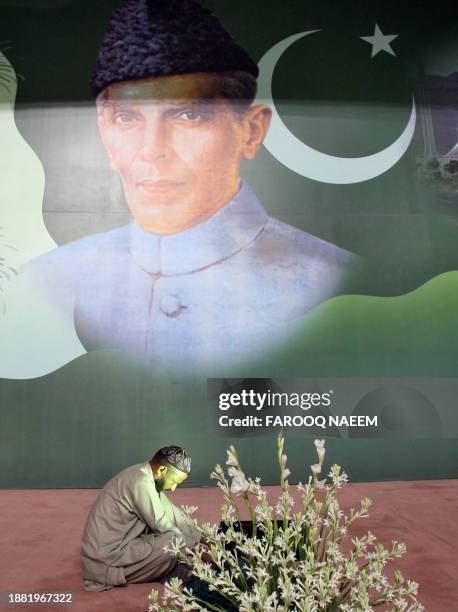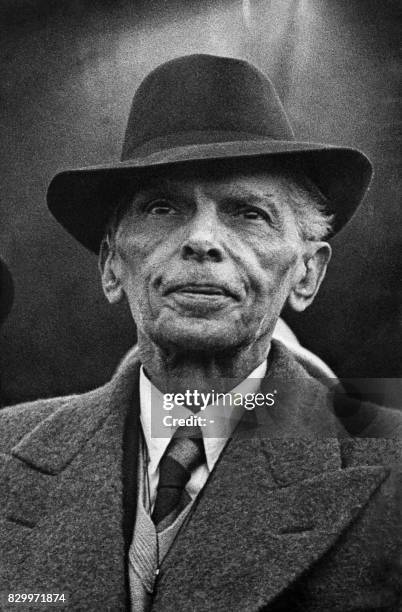
Muhammad Ali Jinnah, revered as the “Quaid-e-Azam” (Great Leader), is a towering figure in the history of South Asia. His vision, leadership, and unwavering commitment to the cause of the Muslims of the Indian subcontinent led to the creation of Pakistan in 1947. Jinnah’s legacy as a statesman, lawyer, and advocate for Muslim rights remains profound and continues to inspire generations.
Early Life and Education
Born on December 25, 1876, in Karachi, then part of British India, Muhammad Ali Jinnah was the eldest of seven children. His father, Jinnahbhai Poonja, was a prosperous merchant, which allowed Jinnah to receive a decent education. Jinnah was initially educated at the Sindh-Madrasa-tul-Islam and later at the Christian Missionary Society High School in Karachi.
In 1892, at the age of 16, Jinnah sailed to London to join the Lincoln’s Inn, one of the four Inns of Court in England, to study law. It was here that he was profoundly influenced by the British political system and the works of William Shakespeare. Jinnah’s time in London was formative, not just in his legal education but also in shaping his political views and aspirations.
Legal and Political Career
Upon his return to India in 1896, Jinnah quickly rose to prominence as a lawyer. His eloquence, command over language, and sharp legal mind made him one of the most sought-after barristers in Bombay (now Mumbai). However, it was his entry into politics that would cement his place in history.
Jinnah joined the Indian National Congress in 1906, a party that was at the forefront of the struggle for India’s independence from British rule. He was a fervent supporter of Hindu-Muslim unity and worked alongside leaders like Mahatma Gandhi and Jawaharlal Nehru. Jinnah was instrumental in the Lucknow Pact of 1916, which was a significant step towards Hindu-Muslim cooperation.
However, over time, Jinnah grew disillusioned with the Congress’s increasingly Hindu-majoritarian stance. He realized that the interests and rights of Muslims were not being adequately represented. This led him to join the All-India Muslim League, a party founded to protect Muslim interests in India.
Champion of Muslim Rights
Jinnah’s leadership of the Muslim League marked a turning point in his political career. He tirelessly advocated for the rights of Muslims, emphasizing the need for a separate political identity. His famous Fourteen Points, proposed in 1929, outlined the demands of Muslims and highlighted the need for safeguards to protect their political and cultural rights.
The turning point came with the Lahore Resolution of 1940, where the Muslim League, under Jinnah’s leadership, formally demanded the creation of an independent Muslim state. This demand was based on the Two-Nation Theory, which argued that Muslims and Hindus were distinct nations with their own customs, religion, and traditions. Jinnah’s eloquence and conviction in presenting this case won him widespread support among Muslims.
Creation of Pakistan
Jinnah’s vision for an independent Pakistan was not merely a political maneuver but a deeply held belief in the right of Muslims to self-determination. His relentless efforts, strategic acumen, and unyielding determination culminated in the partition of India and the creation of Pakistan on August 14, 1947.
As the first Governor-General of Pakistan, Jinnah faced immense challenges. The nascent state had to deal with mass migrations, communal violence, and the task of establishing a functional government. Despite his deteriorating health, Jinnah worked tirelessly to lay the foundations of Pakistan’s political and administrative structures. His speeches during this period emphasized the need for unity, faith, and discipline – principles he believed were essential for the nation’s progress.
Vision for Pakistan
Jinnah’s vision for Pakistan was that of a democratic and inclusive state, where all citizens, regardless of their religion or ethnicity, would have equal rights. In his inaugural address to the Constituent Assembly of Pakistan on August 11, 1947, he famously stated:
“You are free; you are free to go to your temples, you are free to go to your mosques or to any other place of worship in this State of Pakistan. You may belong to any religion, caste or creed—that has nothing to do with the business of the state.”
This vision of a secular, progressive, and inclusive Pakistan was central to Jinnah’s ideology. He believed in the rule of law, justice, and equal opportunity for all. His emphasis on education, economic development, and social justice laid the groundwork for Pakistan’s future development.

Legacy and Influence
Jinnah’s legacy is multifaceted. As the founder of Pakistan, he is revered as the Quaid-e-Azam, a title that signifies his unmatched leadership and dedication. His life and work continue to be a source of inspiration for millions in Pakistan and beyond.
Jinnah’s legal career, marked by his integrity and brilliance, set a high standard for professionalism and ethical conduct. His political journey, from a member of the Congress advocating for Hindu-Muslim unity to the leader of the Muslim League championing the cause of a separate Muslim state, reflects his adaptability, strategic thinking, and unwavering commitment to his principles.
Jinnah’s vision for Pakistan, though challenged by subsequent political developments, remains a guiding light for those who seek a just, democratic, and inclusive society. His speeches and writings continue to be studied and revered for their clarity, foresight, and wisdom.
Muhammad Ali Jinnah’s life is a testament to the power of vision, determination, and leadership. His unwavering commitment to the cause of the Muslims of the Indian subcontinent and his role in the creation of Pakistan mark him as one of the most significant figures in modern history. Jinnah’s legacy as the Quaid-e-Azam, the Great Leader, continues to inspire and guide generations, reminding us of the enduring power of principled leadership and the pursuit of justice and equality.










